History must be viewed
objectively, not selectively
Hari Jaisingh
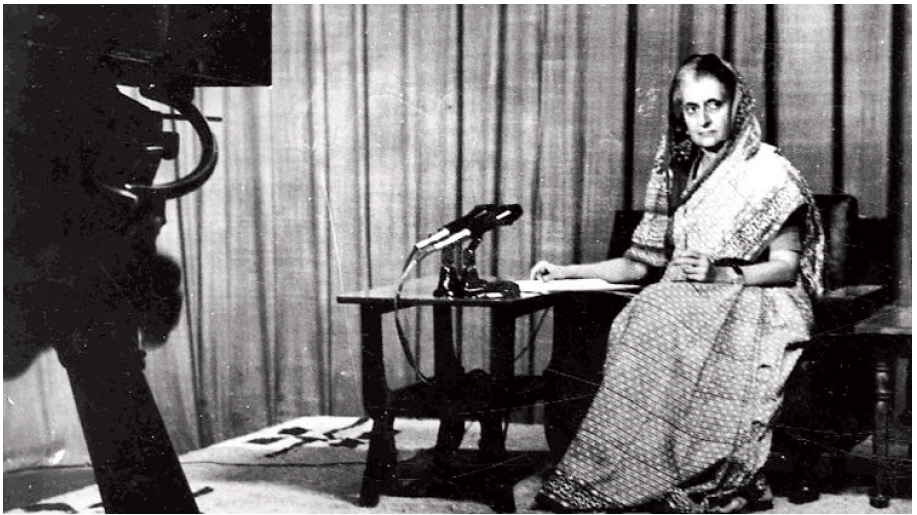 Indira Gandhi declaring Emergency on 25 June 1975
Indira Gandhi declaring Emergency on 25 June 1975
Ibelieve that Indians are poor learners of
history. That is why our rulers keep repeating
the mistakes of yesteryears to the
disadvantage of the nation and people. Those
who ignore the lessons from history are
condemned to repeat them. In fact, the
right inputs from history can make a difference
in the quality of decision-making processes on
complex issues and problems faced by the
country from time to time.
History is not a play. It cannot be tailor-made to
suit one political group or the other. Nor can its
basic facts be tampered with to promote a specified
policy, interest, ideology or preconceived concept of
nationalism, though rediscovered facts can always
be incorporated in an overall objective framework of
the nation.
I am recalling these hard facts of history in
the wake of recent remarks and
observations by certain national leaders of
the ruling Bharatiya Janata Party on Indira
Gandhi's Emergency days for a 21-month
period from June 1975 to March 21, 1977
under Article 352 of the Constitution. Most
of Indira's opponents were imprisoned. The
press was censured. Several other human
rights were violated from time to time,
including a forced mass sterilization
campaign spearheaded by Sanjay Gandhi.
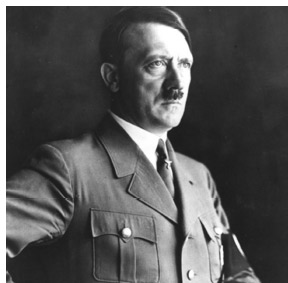 Adolf Hitler
This is not an easy exercise.
European writers, for instance, overemphasised
certain sectarian aspects
in Indian history to suit their
requirements and perspective. This
has been true since the occupation of
Sind by the Arabs in A.D. 712. In the 13
century, and even earlier, it was
discovered that Hinduism and Islam
had a lot in common. At the same
time, there was a tendency, as pointed
by Santosh K. Banerji of Lucknow, to
keep the Hindus and the Turkish or
Mughal rulers separate.
Adolf Hitler
This is not an easy exercise.
European writers, for instance, overemphasised
certain sectarian aspects
in Indian history to suit their
requirements and perspective. This
has been true since the occupation of
Sind by the Arabs in A.D. 712. In the 13
century, and even earlier, it was
discovered that Hinduism and Islam
had a lot in common. At the same
time, there was a tendency, as pointed
by Santosh K. Banerji of Lucknow, to
keep the Hindus and the Turkish or
Mughal rulers separate.
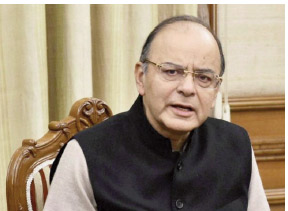 Arun Jaitley
History is expected to record
both these trends. It should miss
neither Mahmud Ghazani, Malik
Kafur nor those who transcended
sectarian barriers such as
Moinuddin Chishti, Abdul Rahim,
Khan-e-Khanan. Kabir, Malik
Mohammad Jaisi, Akbar, Abul Fazal
and Dara Shukoh. The point to
emphasise is that only when the
Indians become aware of the evil
influence of religious bigotry can
they develop a new sense of
Indianism.
Arun Jaitley
History is expected to record
both these trends. It should miss
neither Mahmud Ghazani, Malik
Kafur nor those who transcended
sectarian barriers such as
Moinuddin Chishti, Abdul Rahim,
Khan-e-Khanan. Kabir, Malik
Mohammad Jaisi, Akbar, Abul Fazal
and Dara Shukoh. The point to
emphasise is that only when the
Indians become aware of the evil
influence of religious bigotry can
they develop a new sense of
Indianism.
Europe turned to religious
tolerance and secularism only after
getting exhausted from the bloddy
wars over religion. Even so,
historians there never thought it
necessary to expunge the thirty
years' war from textbooks !
Facts are sacred. They cannot and
should not be tampered with a flawed
perspective of history. This would be
disastrous. So would be any emotional
responses to it. Emotions blur thinking
and create illusions. Illusions and
historical facts are natural enemies. At
least some Indian "episodes" are
partially illusory.
Gandhi went beyond
even Hitler to muzzle
criticism as she "turned
the country into a
"dynastic democracy"…
She prohibited the
publication of
parliamentary
proceeding in the
media."
I am recalling these hard facts of
history in the wake of recent remarks
and observations by certain national
leaders of the ruling Bharatiya Janata
Party on Indira Gandhi's Emergency
days for a 21-month period from June
1975 to March 21, 1977 under Article
352 of the Constitution. Most of
Indira's opponents were imprisoned.
The press was censured. Several other
human rights were violated from time
to time, including a forced mass sterilization campaign spearheaded
by Sanjay Gandhi.
Drawing a parallel between Adolf
Hitler's rule in Nazi Germany and the
imposition of Emergency by then
Congress Prime Minister Indira
Gandhi, a very reputed and rational
minister Arun Jaitley under the Modi
regime, said on June 25,2018, that
both "used a republican constitution
to transform democracy to
dictatorship."
Jaitley said Indira Gandhi went
beyond even Hitler to muzzle criticism
as she "turned the country into a
"dynastic democracy"… She
prohibited the publication of
parliamentary proceeding in the
media".
No sensible person would
defend those darker facets of
Emergency. Vice-President M.
Venkaiah Naidu is right in
suggesting that the youth need to
be sensitized to the dark phase of
India's history so that they could
learn to value the freedom and
democracy. Critical of the rising
levels of intolerance in the name of
'love jihad' and 'cow protection' or
over food habits, the Vice-President
righty said no citizen who violated
the freedom of a fellow citizen
should be called Indian. Well said,
Mr Vice-President Naidu.
However, my points are simple :
Historical personalities cannot be
assessed solely in a set time frame
and by poltical angularities of the
opposite ruling establishment.
Politicians are neither judges nor
certified historians, though they have
every right to air their views on
persons, matters and events. Indira
Gandhi and her rule need to be seen
in totality, and not selectively. Here
objectivity is the key.
I am against dubbing Indira as
Hitler. Similarly, I do not approve of
debunking Prime Minister Narendra
Modi as Aurangzeb as some Congress
leaders have talked about.
I,
however, would like to tell the
Sangh Parivar leaders that the
atmosphere of fear and intolerance
created by their followers against a section of the population would do
them no good. Let them at least
listen to the words of wisdom of
Venkiah Naidu.
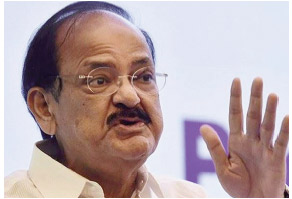 M. Venkaiah Naidu
During her long period of political
ups and down, Indira showed her
charismatic appeal among the
masses. She was adored by the
disadvantage sections – the poor,
Dalits, women and minorities. For
them, the Congress leader then was
Indira Amma, a personification of
Mother India.
M. Venkaiah Naidu
During her long period of political
ups and down, Indira showed her
charismatic appeal among the
masses. She was adored by the
disadvantage sections – the poor,
Dalits, women and minorities. For
them, the Congress leader then was
Indira Amma, a personification of
Mother India.
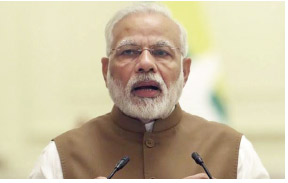 Narendra Modi
During her long period of political
ups and down, Indira showed her
charismatic appeal among the
masses. She was adored by the
disadvantage sections – the poor,
Dalits, women and minorities. For
them, the Congress leader then was
Indira Amma, a personification of
Mother India.
Narendra Modi
During her long period of political
ups and down, Indira showed her
charismatic appeal among the
masses. She was adored by the
disadvantage sections – the poor,
Dalits, women and minorities. For
them, the Congress leader then was
Indira Amma, a personification of
Mother India.
The July 1969 nationalisation of
major banks and the September 1970
abolition of privy purse projected her
as a socialist. In matters of religions,
she was seen as a secularist, though in
those days she gave a boost to yoga
and the Hindu identity by visiting
temples, ashram and seeking
blessings from saints and swamis.
The bold role played by her in the
liberation of Bangladesh in December
1971 projected her as a leader of
substance, guts and action in the
pursuit of national interest.
Even Opposition leaders, who often
accused her of being a dictator, hailed
her as Durga, Hindu goddess. Though
she might have certain dictatorial
traints, we cannot dismiss these
events by dubbing her as Hitler on the
basis of 21 months of Emergency
happenings. What the nation needs
today is learn the present in the light
of the past as well as to learn about
the past in the light of the present.
History is a two-way process of
learning.
I am, against dubbing
Indira as Hitler. Similarly, I
do not approve of
debunking Prime Minister
Narendra Modi as
Aurangzeb as some
Congress leaders have
talked about. I, however,
would like to tell the Sangh
Parivar leaders that the
atmosphere of fear and
intolerance being created by
their followers against a
section of the population
would do them no good. Let
them at least listen to the
words of wisdom of
Venkaiah Naidu !
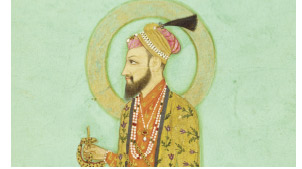 Aurangzeb
Here we need to graciously
acknowledge that after two years of
her Emergency rule Indira Gandhi
probably realized her blunders and
lifted Emergency on March 21 1977.
No doubt, "excesses" were committed
during this period. She was wrongly
advised by her close advisors,
including her son. She trusted them
blindly. She was basically a sensitive
person and democratic at heart. She
proved this by lifting the Emergency
rather than taking things to the path of
Hitler which led to the second
world war.
Aurangzeb
Here we need to graciously
acknowledge that after two years of
her Emergency rule Indira Gandhi
probably realized her blunders and
lifted Emergency on March 21 1977.
No doubt, "excesses" were committed
during this period. She was wrongly
advised by her close advisors,
including her son. She trusted them
blindly. She was basically a sensitive
person and democratic at heart. She
proved this by lifting the Emergency
rather than taking things to the path of
Hitler which led to the second
world war.
During 1973-75,
political unrest against
the Indira Gandhi
establishment spread
across the country. We
saw the Nav Nirman
movement. In April
1974 in Patna,
Jayaprakash Narayan
(JP) called for "total
revolution."
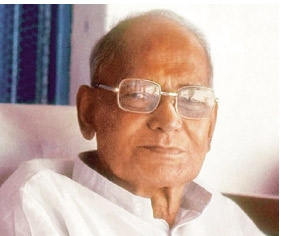 Jayaprakash Narayan
During 1973-75, political unrest
against the Indira Gandhi
establishment spread across the
country. We saw the Nav Nirman
movement. In April 1974 in Patna,
Jayaprakash Narayan (JP) called for
"total revolution." I do not wish to
discuss the country's landmarks
events before the Emergency and
turbulent happenings thereafter. On
all fronts of governance, the judiciary
included, Indira called for fresh
elections for March 1977. In the Lok
Sabha polls, Indira Gandhi and Sanjay
both lost their parliamentary seats.
Jayaprakash Narayan
During 1973-75, political unrest
against the Indira Gandhi
establishment spread across the
country. We saw the Nav Nirman
movement. In April 1974 in Patna,
Jayaprakash Narayan (JP) called for
"total revolution." I do not wish to
discuss the country's landmarks
events before the Emergency and
turbulent happenings thereafter. On
all fronts of governance, the judiciary
included, Indira called for fresh
elections for March 1977. In the Lok
Sabha polls, Indira Gandhi and Sanjay
both lost their parliamentary seats.
The Congress was reduced to just 153
seats of its 352 seats in the 1971
general elections. The Janata Party's
298 seats and its allies 47 seats (of a
total of 542) gave it a massive
majority. Morarji Desai became the
first non-Congress Prime Minister.
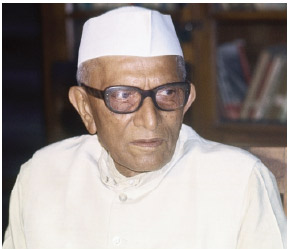 Morarji Desai
Here, it is worth recalling Mr Justice
H.R. Khanna's observations in his
judgement in the Kesavananda
Morarji Desai
Here, it is worth recalling Mr Justice
H.R. Khanna's observations in his
judgement in the Kesavananda
Bharati case which showed a
remarkable foresight in sketching
clearly the scenario of the long night of
shame that gripped a shocked nation
on June 26, 1975. He stated :
One lesson we must derive
from Emergency is : the
only effective safeguard is
an independent judiciary.
Equally important is the
role played by free and
independent-minded
media persons. They are
not supposed to bend or
crawl in the face of the
Emergency –like situation.
We must never blindly
trust a political
government to guarantee
and defend the democratic
rights of citizens in all
circumstances. The price of
freedom is constant
vigilance !
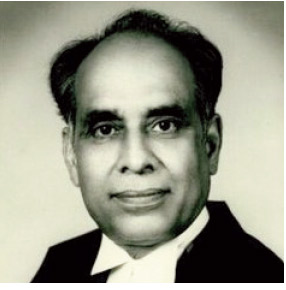 Justice Hans Raj Khanna
"Even without amending
any Article, the Emergency
provisions in Article 358 and
359 can be theoretically used in
such a manner as may force
the democratic set-up by
prolonging the rule of the
party in power beyond the
period of five years since the
last elections after the party in power has lost public support."
Justice Hans Raj Khanna
"Even without amending
any Article, the Emergency
provisions in Article 358 and
359 can be theoretically used in
such a manner as may force
the democratic set-up by
prolonging the rule of the
party in power beyond the
period of five years since the
last elections after the party in power has lost public support."
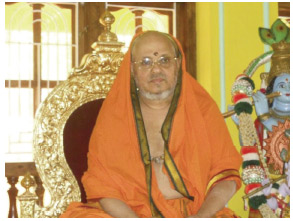 Kesavananda Bharati
He further stated :
"The effective check against such
unabashed use of power is the sense
of political responsibility, pressure of
public opinion and the fear of popular
uprising."
Kesavananda Bharati
He further stated :
"The effective check against such
unabashed use of power is the sense
of political responsibility, pressure of
public opinion and the fear of popular
uprising."
Still, the inconceivable happened.
The instruments of checks for the
misuse of power then proved to be
ineffective or wanting in its instant
bite. This is a serious matter that
underlines the presence of a deeprooted
rot in the priority and the
absence of political maturity and
sense of responsibility among those
who govern in the name of the people.
What then witnessed was "irrational
power of the formless mass," as
Walter Lippman once described it.
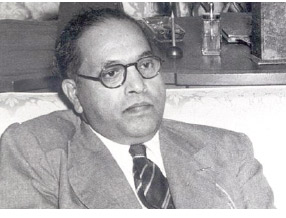 B.R. Ambedkar
Interestingly, Dr. B.R. Ambedkar
was clear about futuristic trends in
Indian politics. That is why his word of
caution on "here worship" which, he
thought, could be a sure road to
degradation and to evolving
dictatorship. Herein lies the
importance of the institutions to check misuse and abuse of power by
political masters and their backroom
persons. It is also important to
remember that parliamentary
democracy would survive as long as
internal democracy is maintained in
the ruling party and also in the
opposition.
B.R. Ambedkar
Interestingly, Dr. B.R. Ambedkar
was clear about futuristic trends in
Indian politics. That is why his word of
caution on "here worship" which, he
thought, could be a sure road to
degradation and to evolving
dictatorship. Herein lies the
importance of the institutions to check misuse and abuse of power by
political masters and their backroom
persons. It is also important to
remember that parliamentary
democracy would survive as long as
internal democracy is maintained in
the ruling party and also in the
opposition.
Dr. B.R. Ambedkar was
clear about futuristic
trends in Indian politics.
That is why his word of
caution on "here worship"
which, he thought, could
be a sure road to
degradation and to
evolving dictatorship.
Herein lies the importance
of the institutions to check
misuse and abuse of
power by political masters
and their backroom
persons.
Be that as it may. One lesson from
Emergency we must derive is : the
only effective safeguard is an
independent judiciary. Equally
important is the role played by free
and independent-minded media
persons. They are not supposed to
bend or crawl in the face of the
Emergency –like situation.
We must never blindly trust a
political government to guarantee and
defend the democratic rights of
citizens in all circumstances. The price
of freedom is constant vigilance to
check "misuse and abuse of power by
political masters."




 Indira Gandhi declaring Emergency on 25 June 1975
Indira Gandhi declaring Emergency on 25 June 1975 Adolf Hitler
Adolf Hitler Arun Jaitley
Arun Jaitley M. Venkaiah Naidu
M. Venkaiah Naidu Narendra Modi
Narendra Modi Aurangzeb
Aurangzeb Jayaprakash Narayan
Jayaprakash Narayan
 Morarji Desai
Morarji Desai
 Justice Hans Raj Khanna
Justice Hans Raj Khanna
 Kesavananda Bharati
Kesavananda Bharati
 B.R. Ambedkar
B.R. Ambedkar